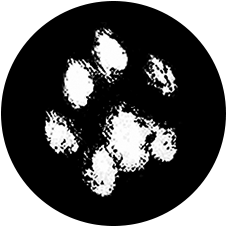

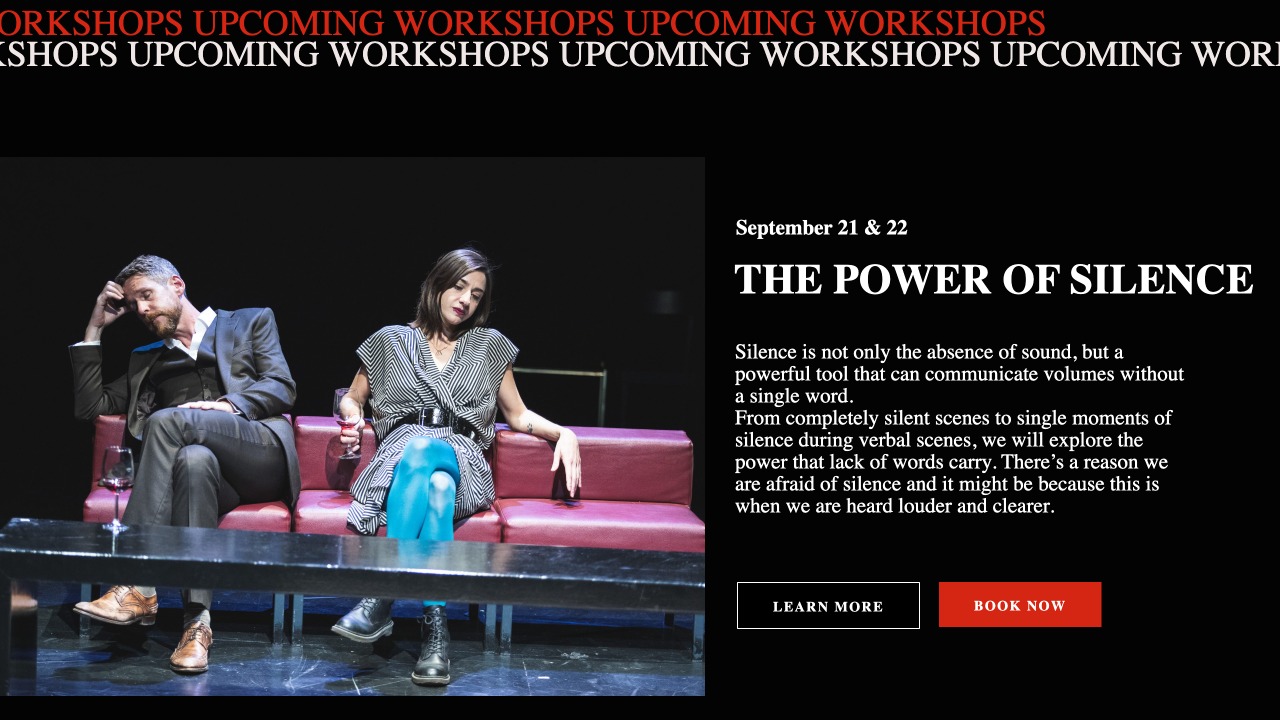
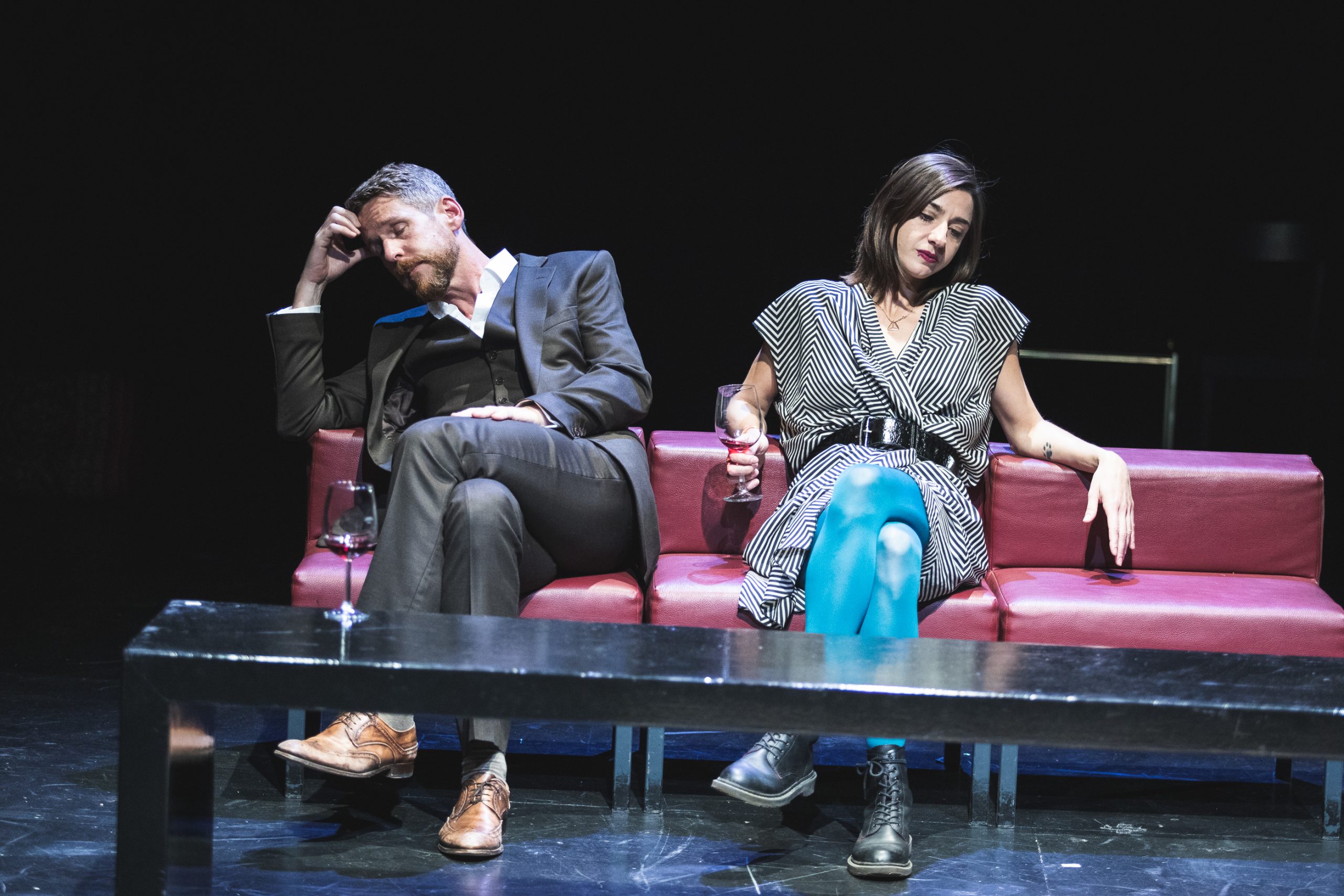 LEARN MOREBOOK NOW
LEARN MOREBOOK NOW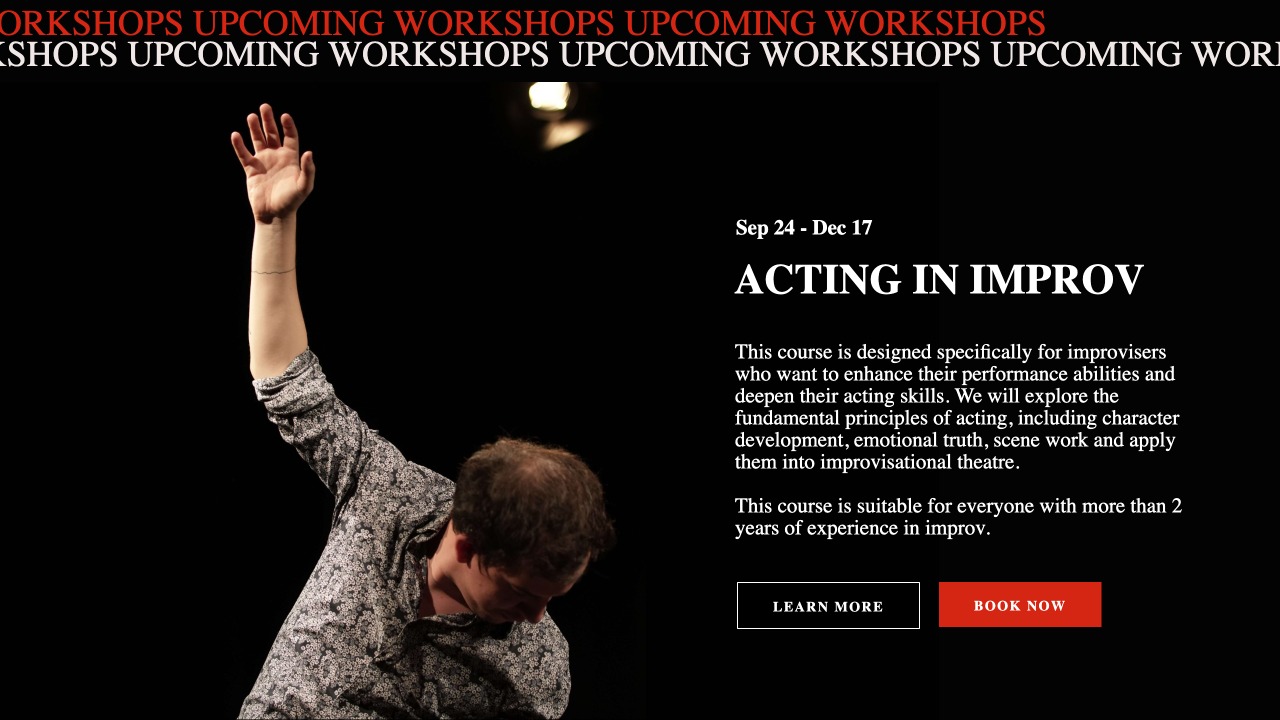
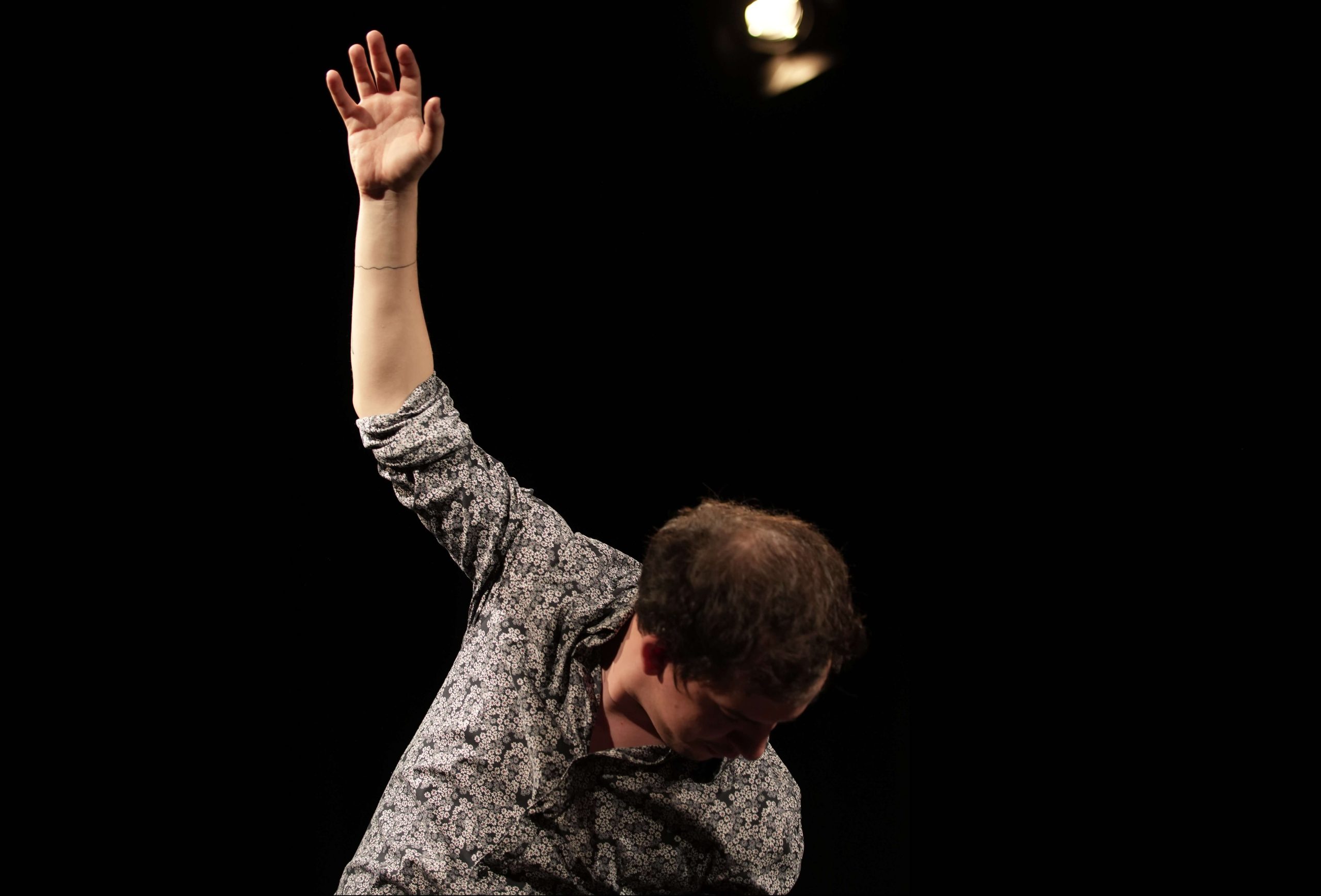 LEARN MOREBOOK NOW
LEARN MOREBOOK NOW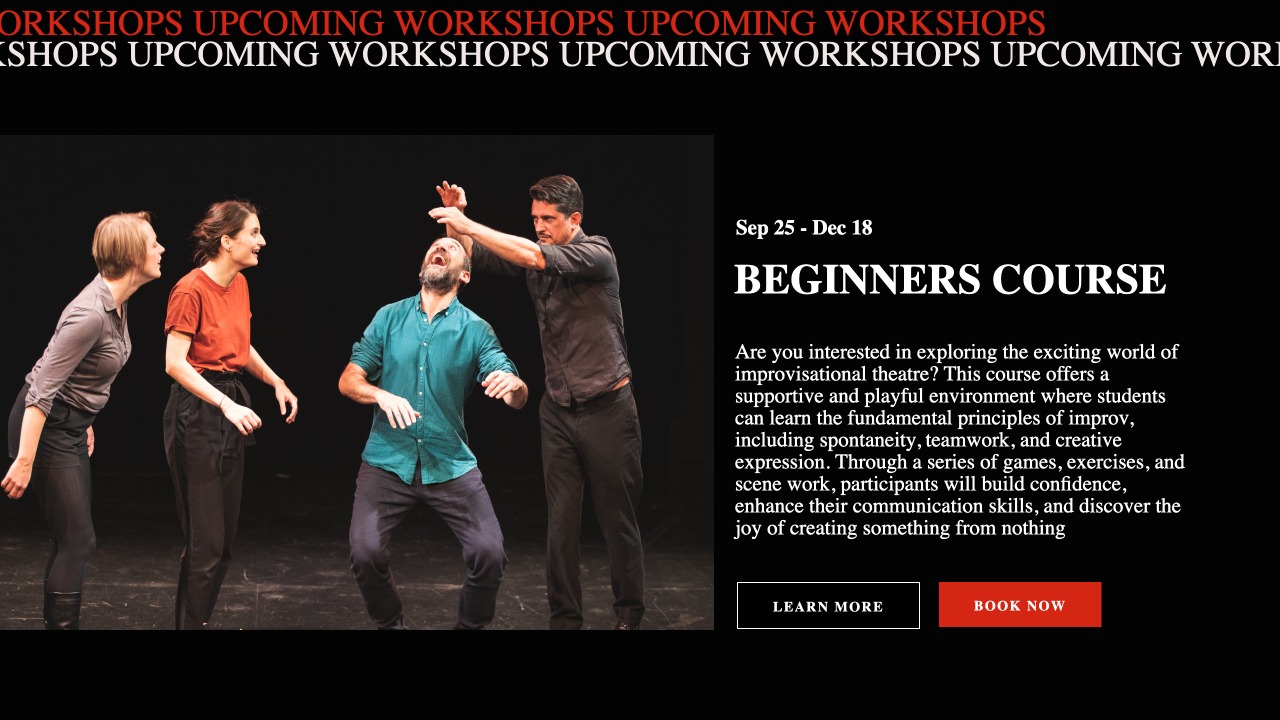
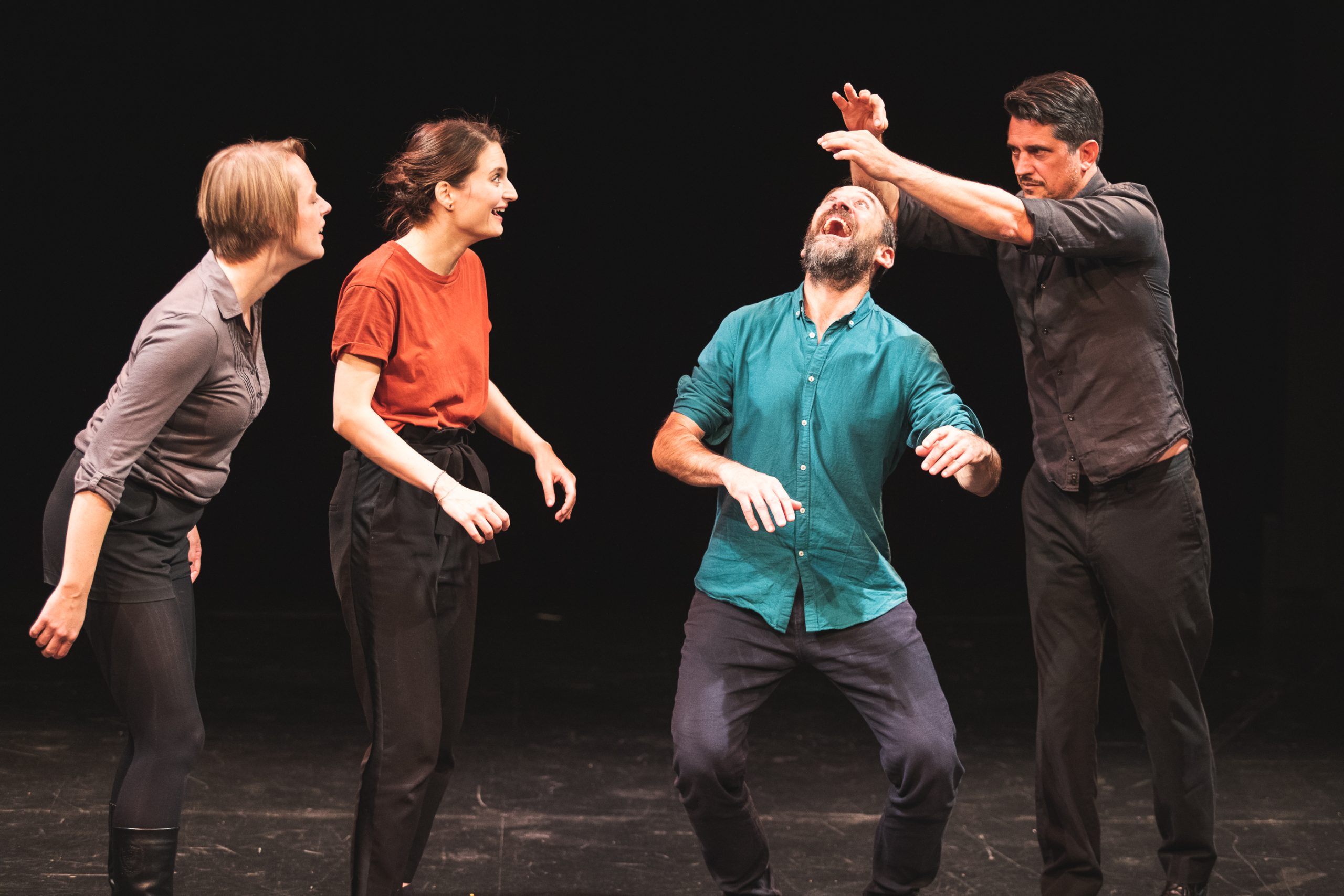 LEARN MOREBOOK NOW
LEARN MOREBOOK NOW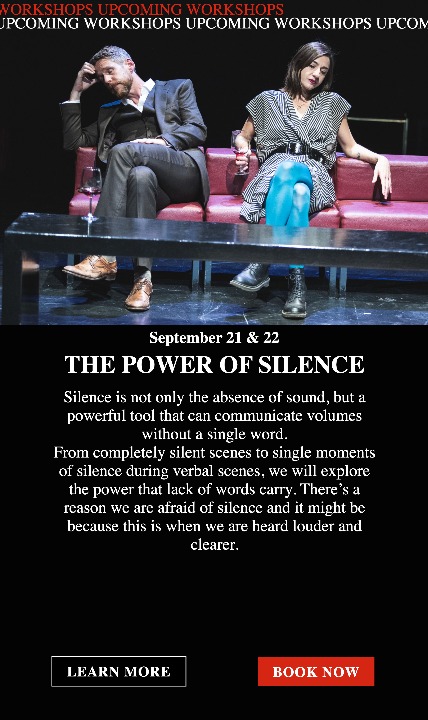
 BOOK NOWLEARN MORE
BOOK NOWLEARN MORE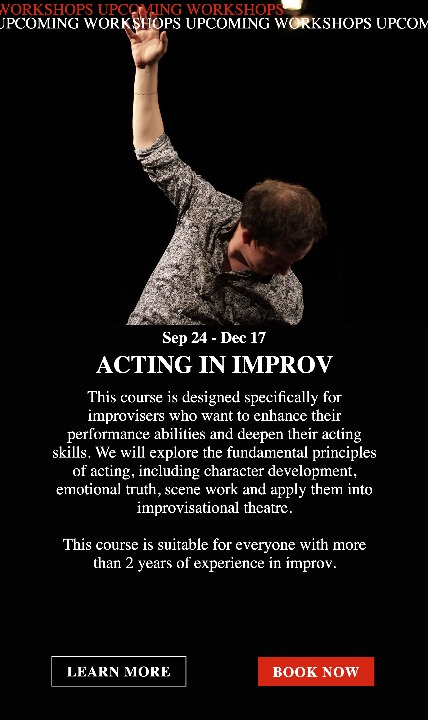
 BOOK NOWLEARN MORE
BOOK NOWLEARN MORE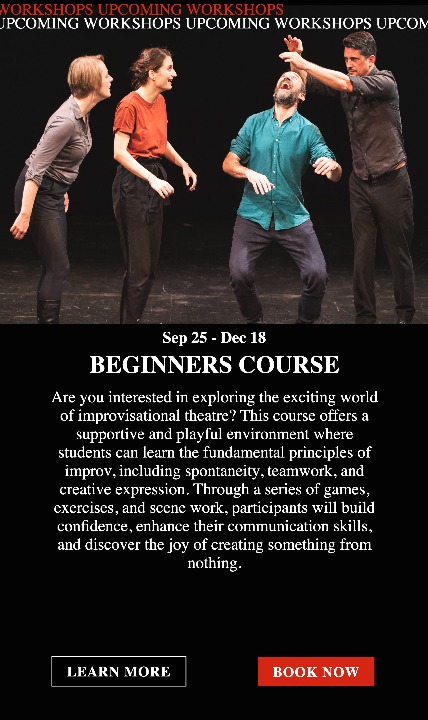
 BOOK NOWLEARN MORE
BOOK NOWLEARN MOREFor this workshop we will use the strongest acting quality, observation. We will slow down and notice. There’s a fascinating beauty in taking things slow on stage. Take your time to distinct the small elements that make a difference and feed our impulses. Using acting techniques we will train ourselves to read our scene partner in much more depth and create strong relationships that take our scenes to a much deeper and meaningful level.
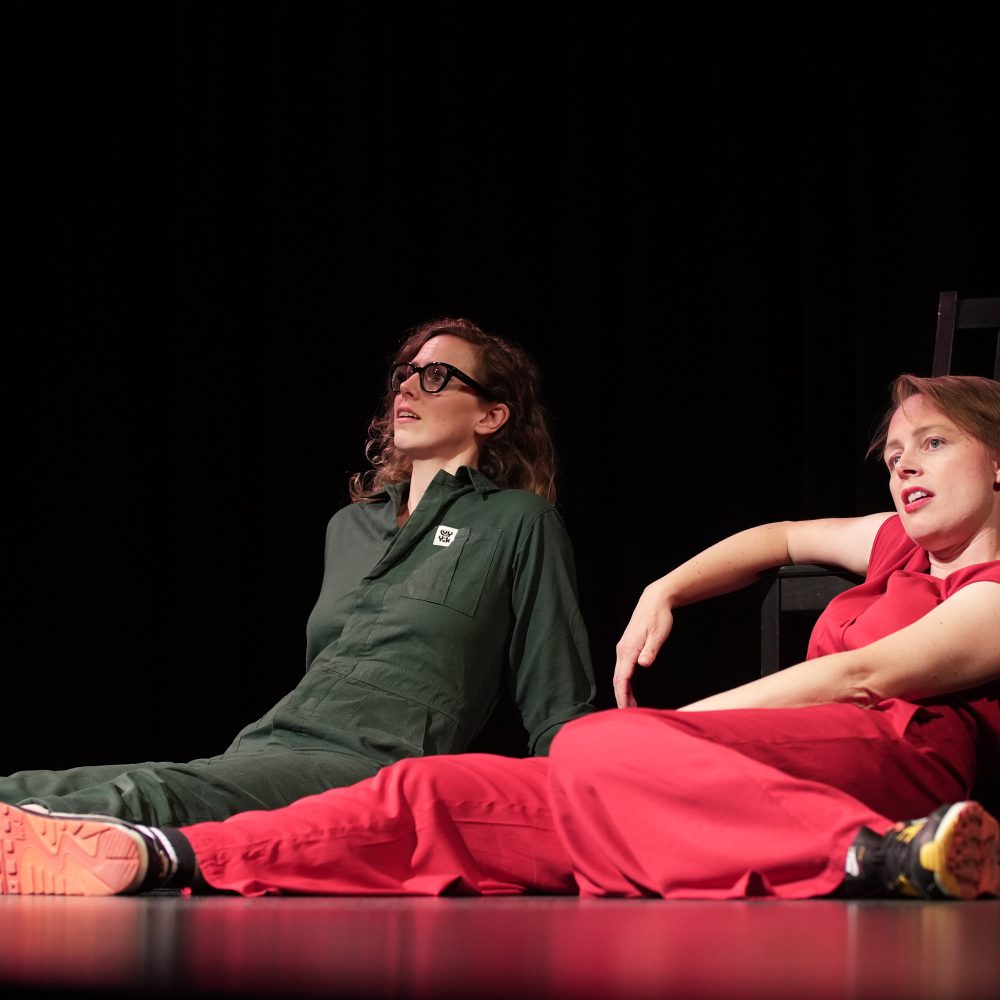
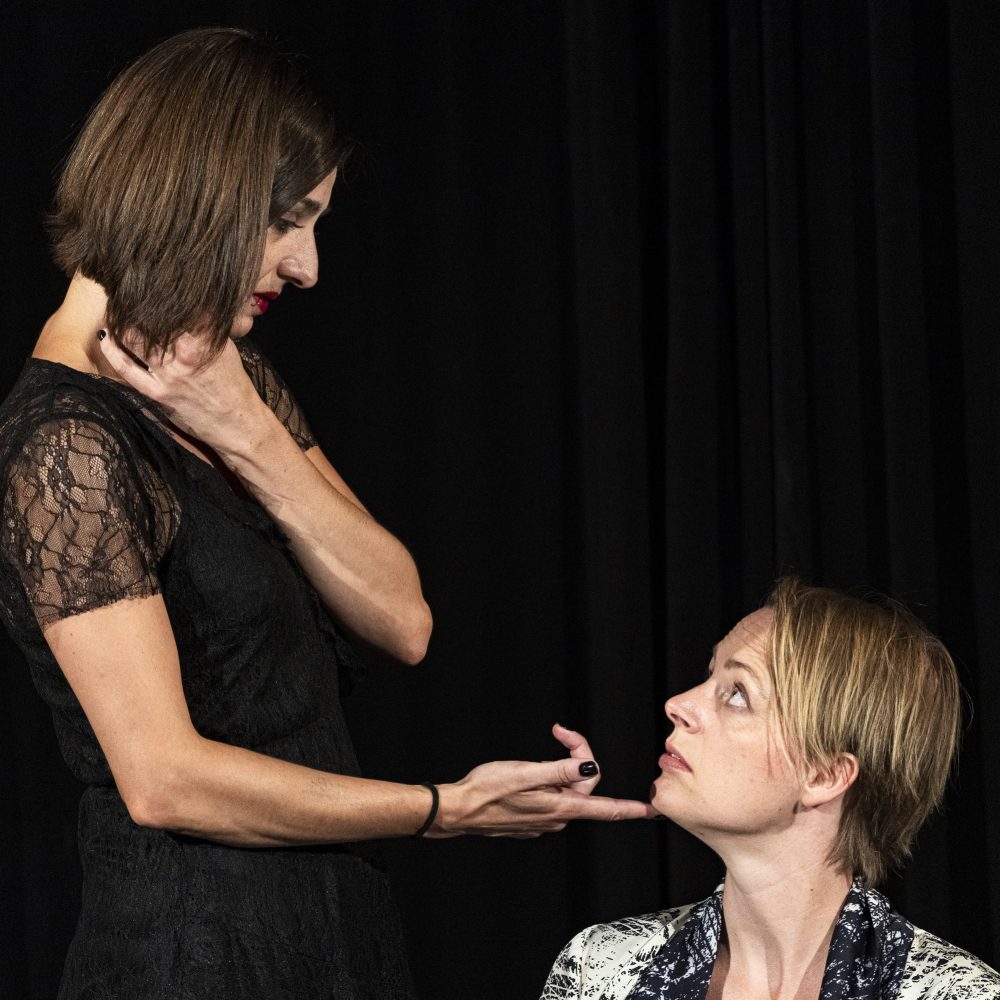
What do you seek in a scene, as an audience? All of us will give different answers, but they sum up to two words, personal identification. Emotions are something all humanity has in common. By using them on stage the audience relates to our scenes and character. In this workshop we will use this knowledge to connect with each other and with the audience. We will challenge our partners and ourselves emotionally and learn how to create memorable stories and scenes.
As actors, our job is to tell stories. We think we make up the stories, but we don’t. They already exist. We just have to follow them and let them take us where they want to go. In this workshop we will make our lives easier on stage by listening to what our stories have to say and let them make all the decisions for us.
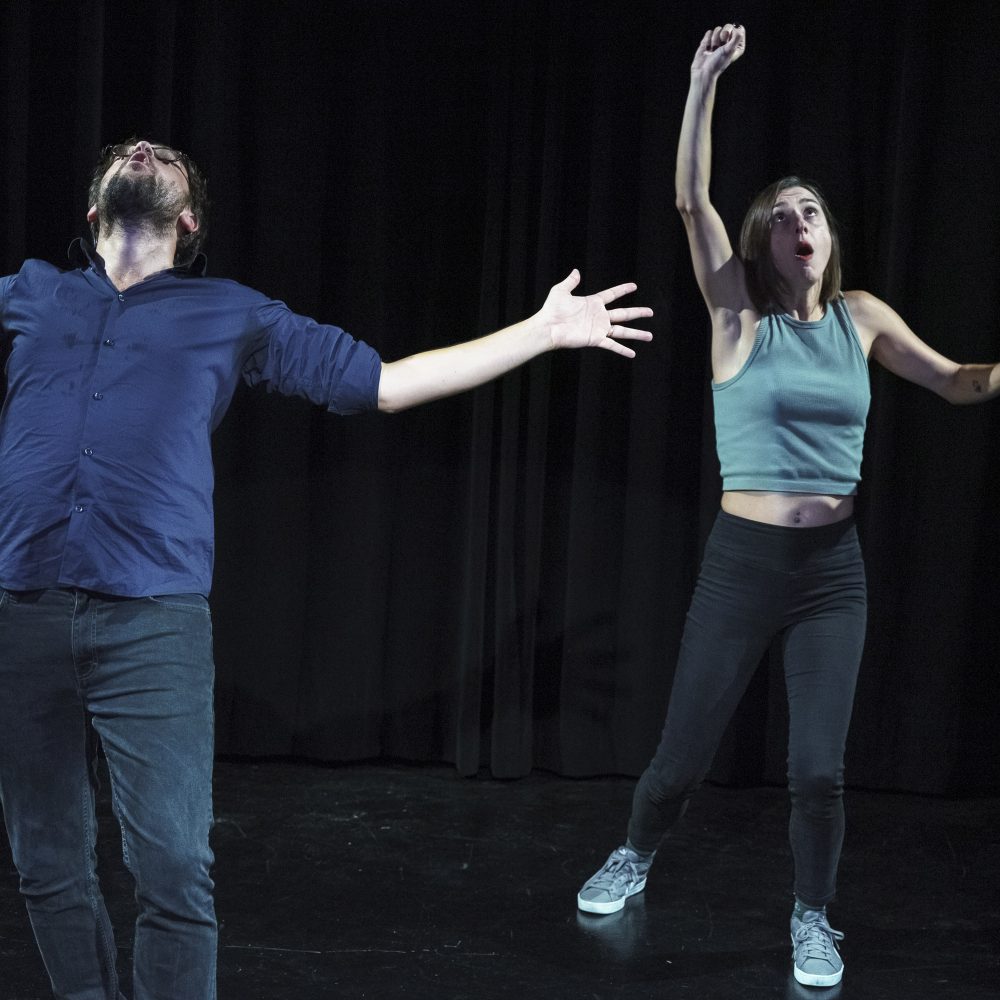
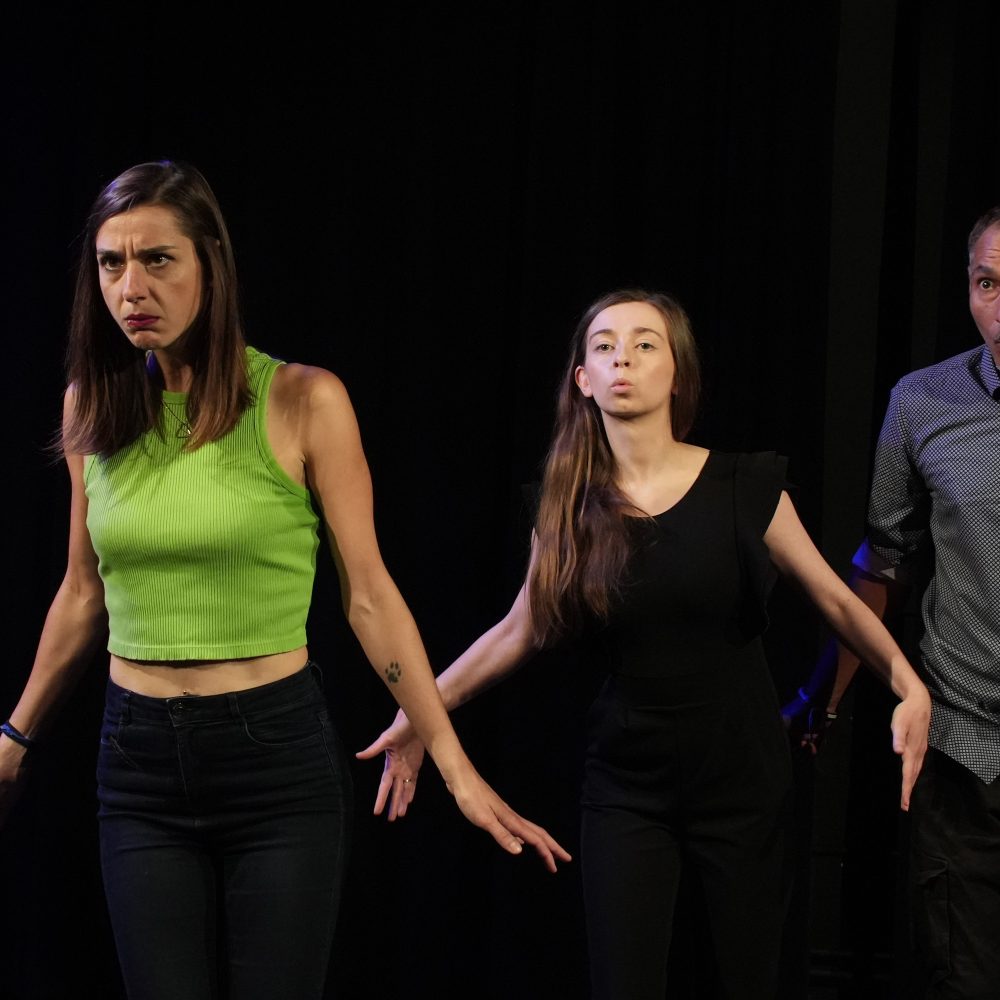
A good story requires appealing characters. Characters who not only will be multidimensional and relatable, but also characters who evolve and change throughout their stories. We don’t stay the same, so why should our characters? But it’s not easy to create a character like that over the top of our head, while juggling with directing, writing and set design our show and at the same time not falling into the trap of creating the same types of characters over and over again.
So let’s work on some tools to create unique and memorable characters (physicality, emotional state, object work and more), to get you out of your comfort zone and help you find ways to stick with your character through the whole show, while evolving them throughout the story.
There are so many different ways to say or do the same thing. Every single one of them gives different information. The connotations of the words we use, our body language, are tools that we can use in order to share extra and specific information with our partners and our audience. In this workshop, inspired by the book of Raymond Quenaeu, “Exercise in Style”, we will explore how different things can be, by changing our phrasing, our emotions or body language. At the end of the course you will have the opportunity to try on stage the new tools we’re going to explore, with a unique show created by the group itself! Be prepared for some mind meddling exercises and games!
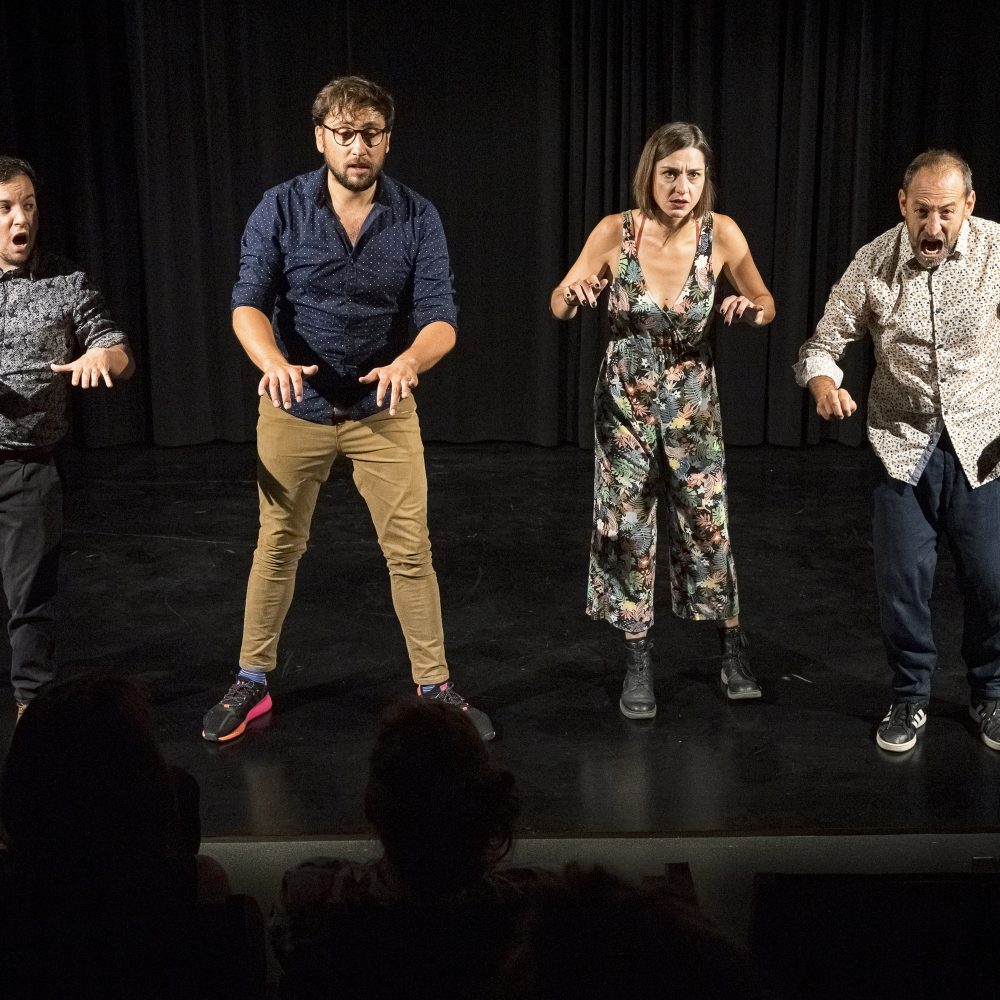
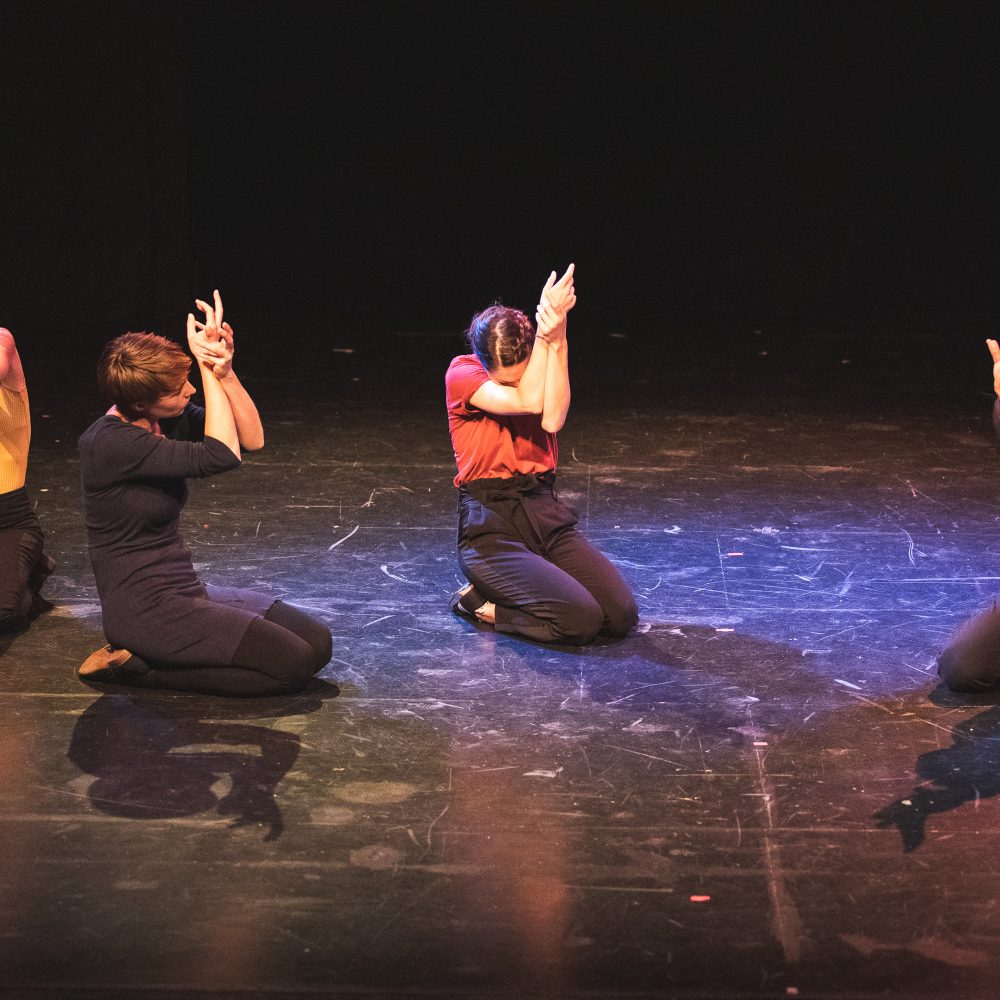
Actors on an improv stage shouldn’t work as individuals. They must work as a well-oiled machine, as one organism, as being the tentacles of the same octopus, each having a brain of its own, but uses it in combination and harmony with the rest. In order to achieve that, we need to work on trust, communication, connection and support. Improv is easier when we share it with people we trust.
Do you want to be an action heroine or hero on stage? Jump off roofs, ride the hood of a racing car, survive an explosion, climb a skyscraper, be part of a shootout, with safety and avoiding the unwanted consequences? This workshop focuses exactly on that. We will explore the Action genre and the ways we can turn it into an improv show. So, put on your most comfortable shoes, because we’re about to BLOW SOME SH#T UP!!
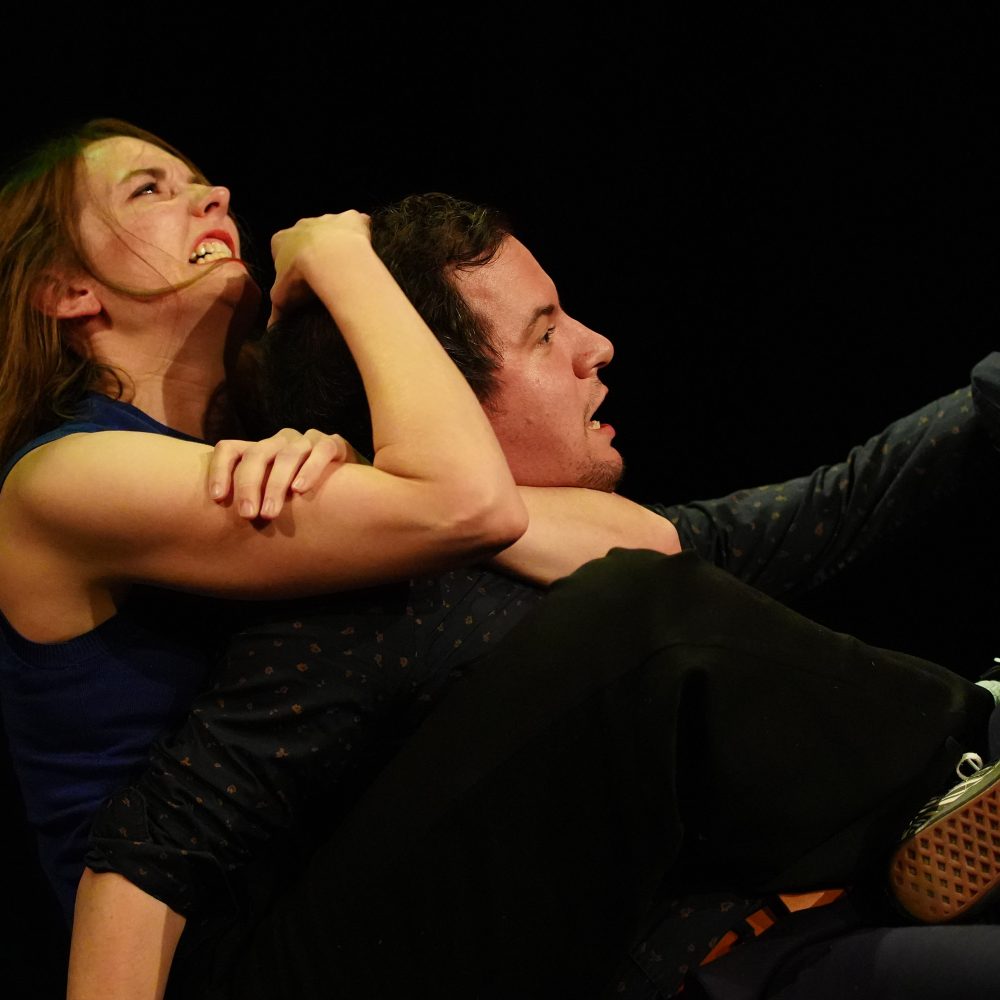
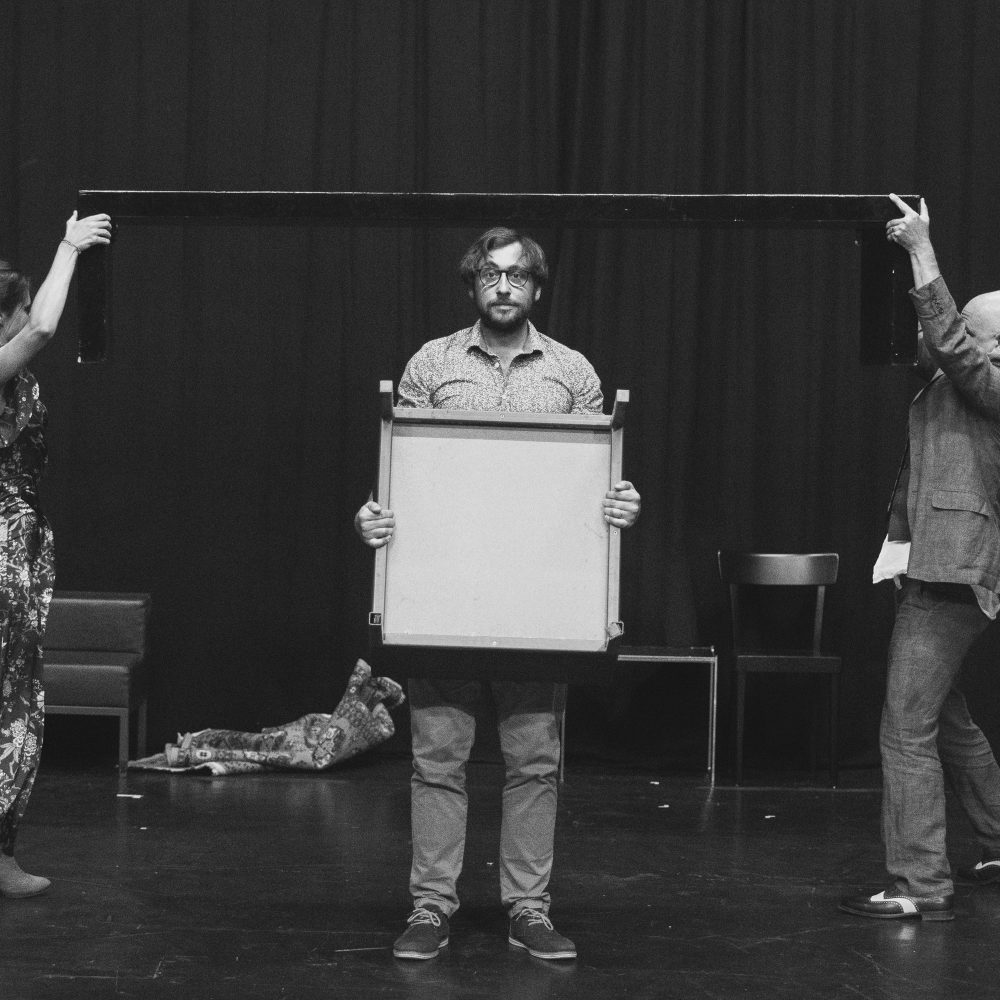
Physical environment, objects, atmosphere are very important for our work and the stories we want to share with each other and the audience. As improv scenes usually include minimal or no props at all, we need to be able to establish the environment using our physicality.
Let’s explore together how to manipulate space, play with distances and invisible objects and enrich our toolbox and our physical skills. You will never look at an empty stage the same way again.
Exploring the concept of contrasts and using them as tools to create multidimensional, appealing and unforgettable characters and relationships.
The world is filled with contrasts. Our behaviour, our emotions, our communication includes all types of them. In this workshop we will work on different types of contrasts and help enrich our character’s toolbox.
What we say vs what we do, what we say vs what we actually mean, what we really feel vs what we allow others to see. The relationship between text and subtext is an element that can give our character depth and soul, make them real and more relatable.
What is the relationship between good and evil? Humans are neither good nor evil. We are potentially both. So how can we use this on stage? What makes a person likeable when they become villains? We will explore together all these questions and more, in a workshop that will get us closer to the character’s truth, even when they are not ready to reveal it with words!
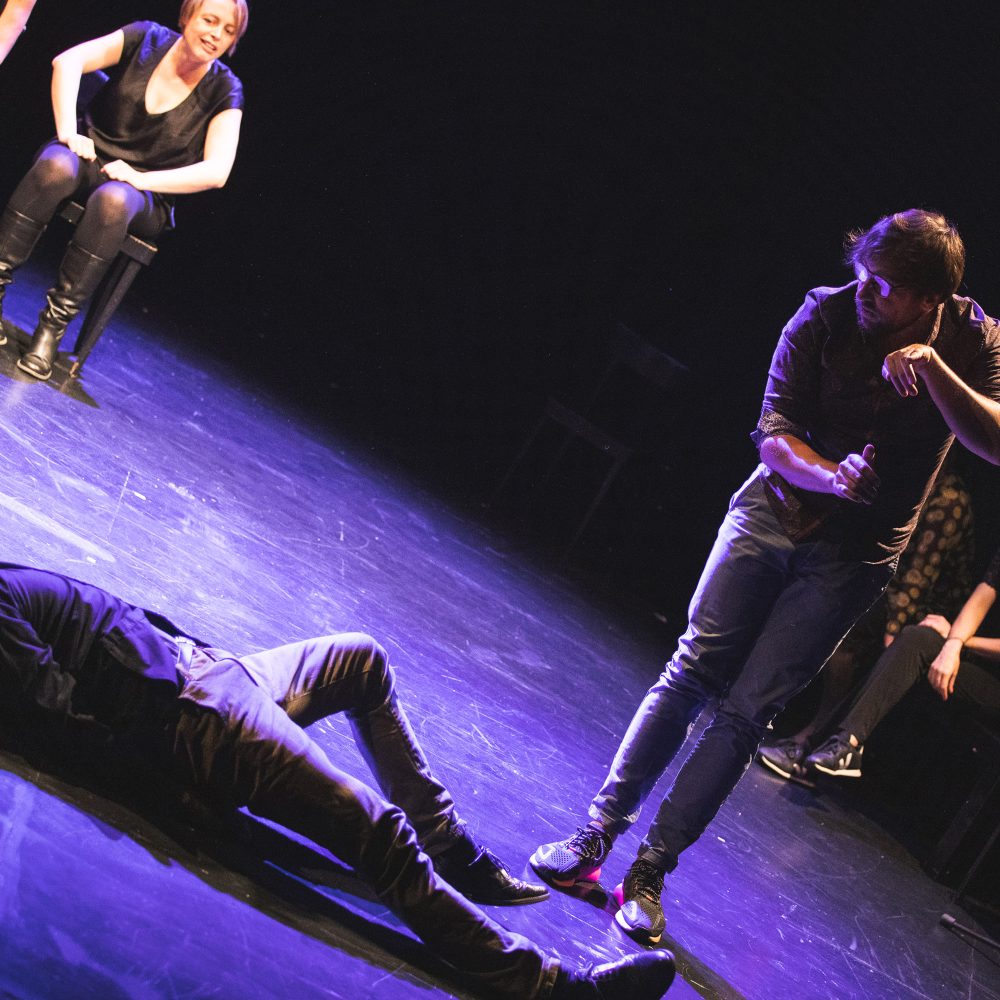
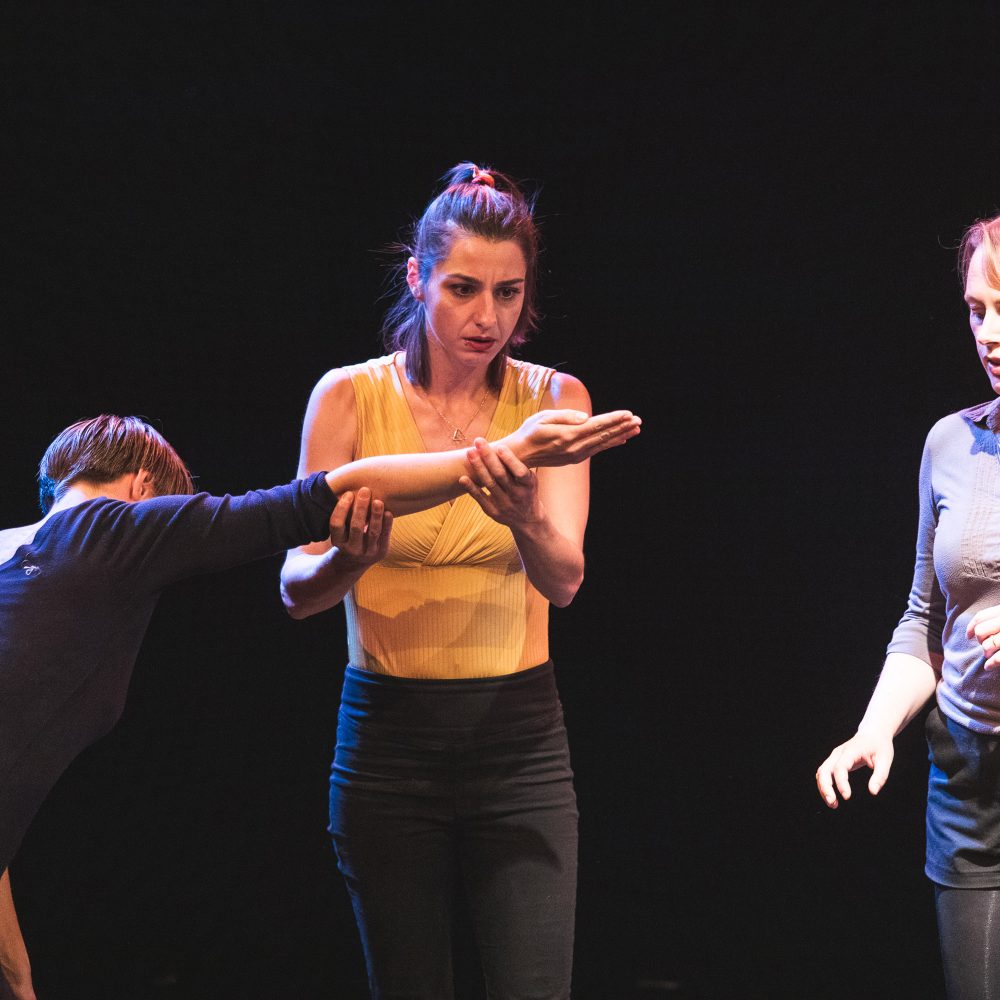
Narrative is a type of improv show in which the characters, the scenes and the locations are connected and tell the same story.
One of the most challenging things in improv is creating one long story on the spot and making it interesting, with exciting characters, tension and suspense, emotional and relatable.
In this workshop we will explore and work on the skills needed to feel comfortable enough to create a whole narrative on stage. We will experiment with different styles and ways of telling a story and we will work on basic techniques on how to keep track of our story.
Humans are creatures of story. It is a human communication and learning skill and eventually it always appears in our improv. Think of it as an untamed superpower! Let’s learn how to control it and use it at will!
Magneto (X-men), Joker (Batman), Hannibal Lecter (Silence of the Lambs) and of course Darth Vader (Star Wars). What do all these villains have in common? We like them! We empathise with them. Some root for them. What’s their secret? How can you create evil characters that the audience will love and support? Being the villain is always a challenge. In this workshop we will explore what it takes to be a memorable and relatable villain. So embrace your dark side and let’s create some trouble!
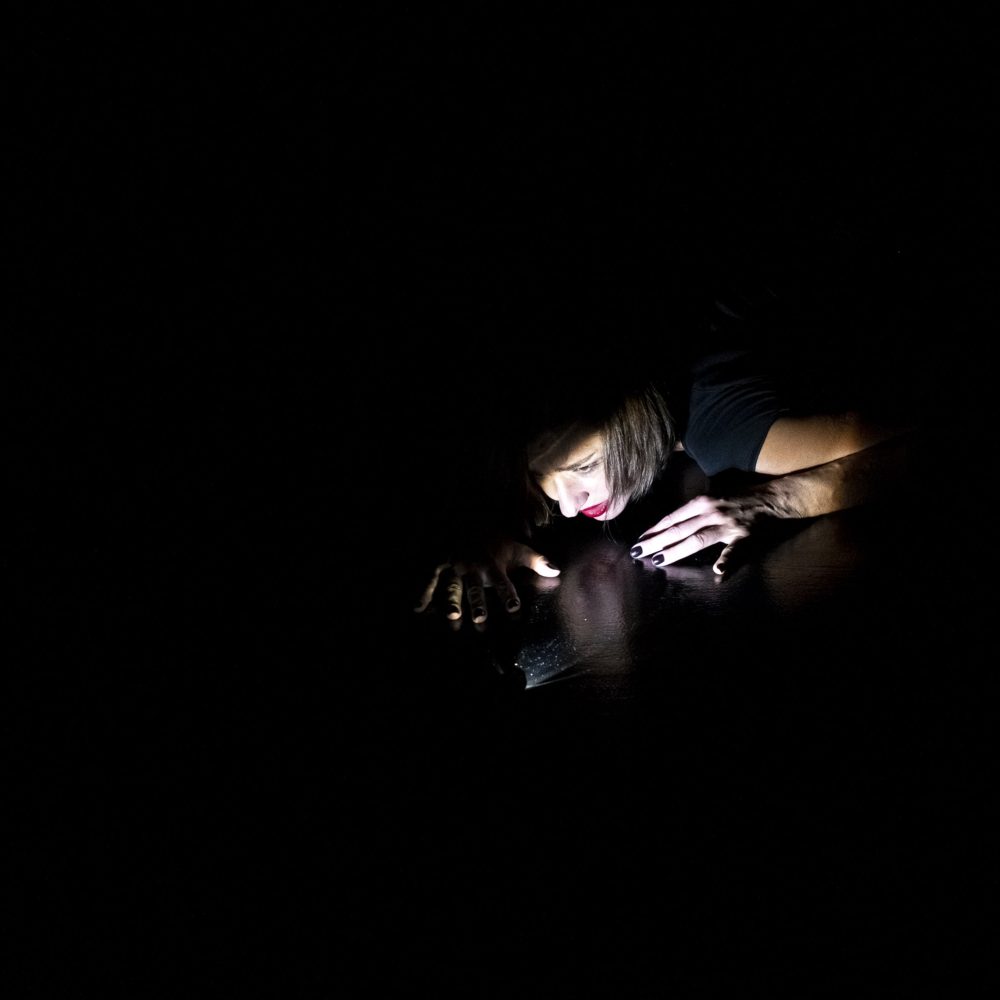
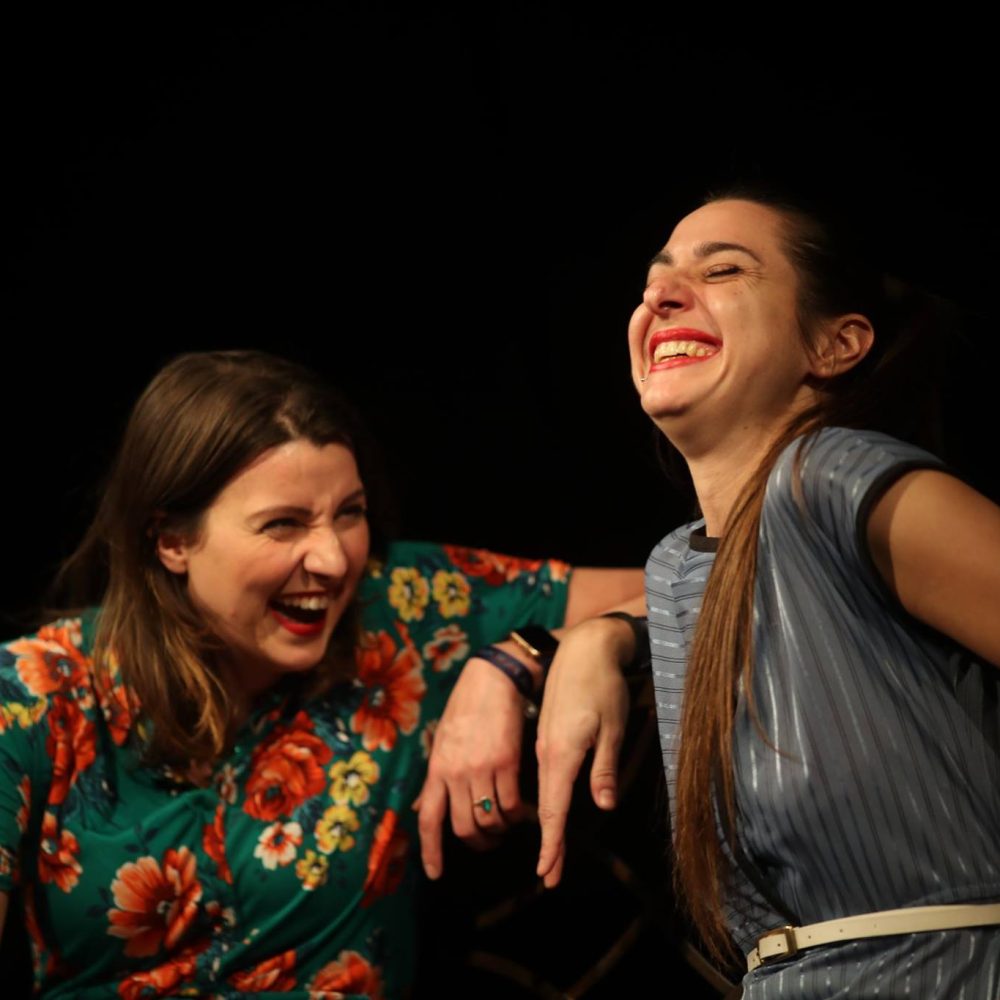
Let’s celebrate the beauty of language and spoken expression. We will dive into the power of words and explore how verbal communication can create rich narratives, bring to life dynamic characters, and build memorable scenes.
We will use the nuances of language and practice to sharpen our verbal skills, while getting rid of the fear of being dull and uninteresting, by using the connotations of the words to channel our emotions and thoughts.
Let’s explore the power of physical communication over verbal expression.
We will discover new ways to channel emotions, thoughts, and narratives on stage without relying on words.
Non-verbal communication skills, physical creativity, and breaking the barriers of traditional dialogue-centric scenes will be our focus for these two and a half hours, while letting our verbal part of our brain rest for a while!
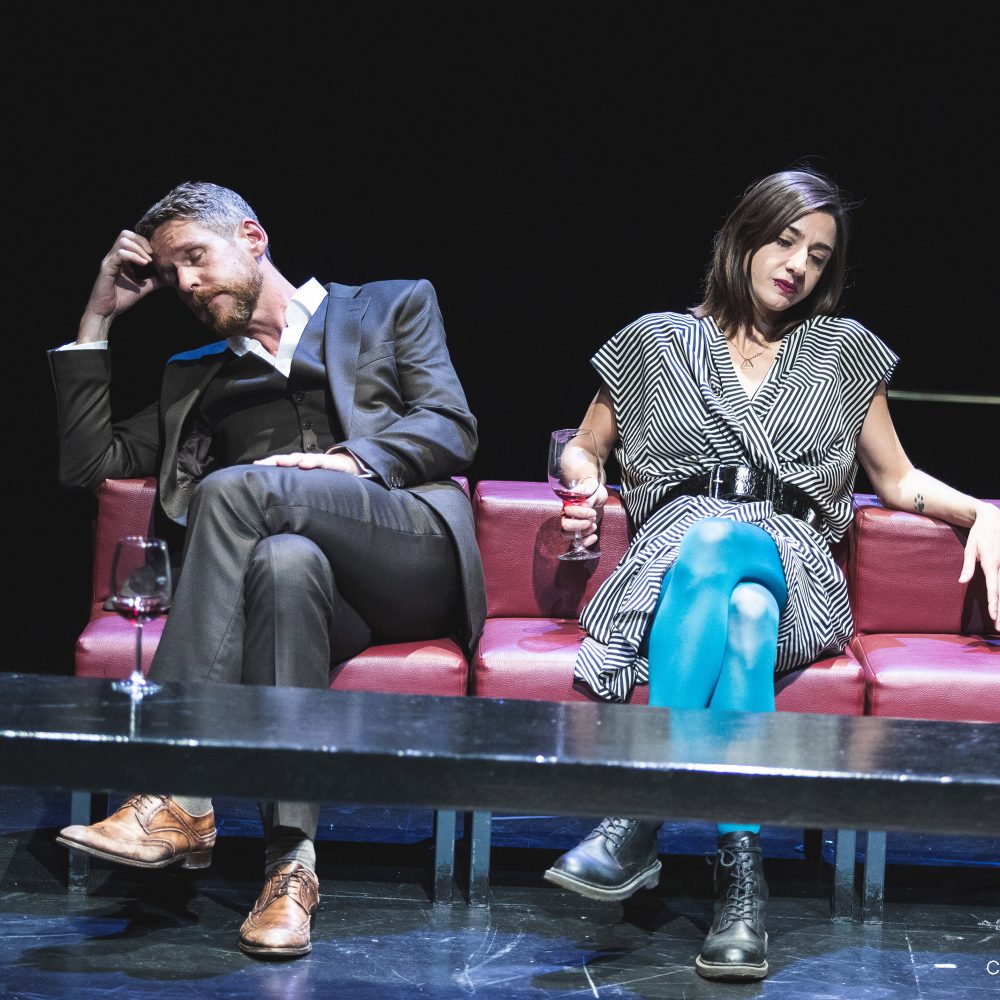
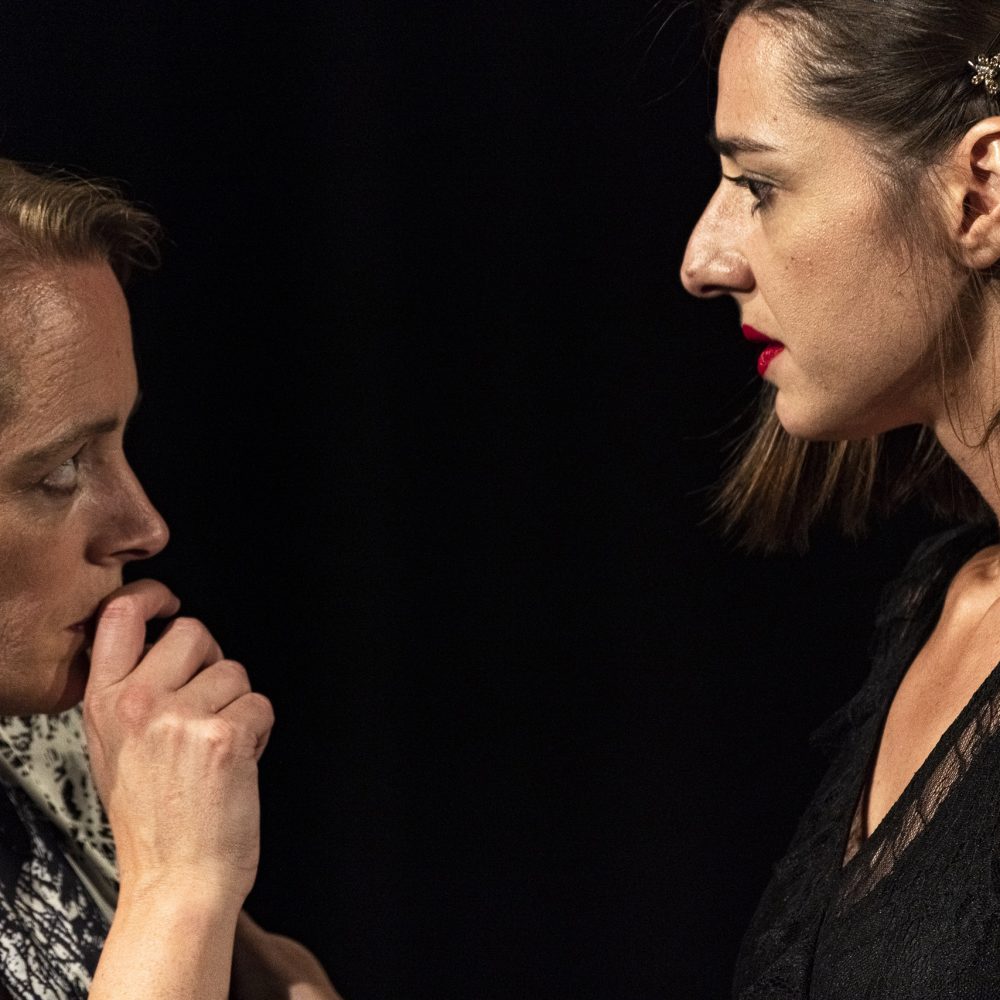
We humans, are storytelling machines. We use stories to communicate, teach, learn, understand.
In this workshop we will explore the storytelling side of improv and all these elements needed to make our stories memorable and meaningful.
From character work to dramaturgy, we will work on different styles of stories, but with a common goal: make them engaging.
